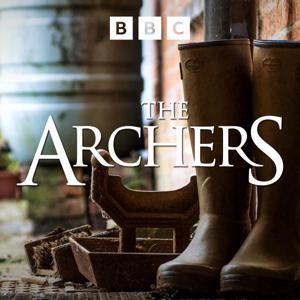In this powerful and far‑reaching episode of Equine Assisted World, Rupert Isaacson speaks with Brandy Tomhave, Executive Director of the Native American Humane Society and an enrolled member of the Choctaw Nation.
This conversation goes far beyond animal welfare. Together, Rupert and Brandy explore how animals—especially dogs and horses—serve as bridges between cultures, as carriers of medicine, and as essential companions in communities shaped by historical trauma, systemic neglect, and extraordinary resilience.
Brandy shares her journey from decades of Native American legal advocacy into animal welfare, describing how colonial systems, poverty, and misunderstood cultural differences have deeply affected both people and animals on reservations. She explains why animal wellness cannot be separated from human wellbeing, and how concepts like relationality, balance, generosity, and One Health have long existed in Indigenous cultures.
From the lived realities of reservation life to the ethical challenges of modern animal rescue, from horses as cultural relatives to dogs as potential lifelines in communities facing suicide and mental health crises, this episode invites listeners to rethink what it truly means to be humane.
This is a conversation about humility, listening, ambiguity, and the radical idea that being a “good relative”—to animals and to each other—might be the most important work we can do.
If you want to support the show, you can do so at Patreon: https://www.patreon.com/LongRideHome
🔍 What You’ll Learn in This Episode
- Why Native American identity is political and sovereign—not racial
- How colonial trauma affects animals as well as people
- Why many “rescued” reservation dogs were never abandoned
- How dogs and horses function as spiritual, emotional, and cultural relatives
- What “One Health” really means from an Indigenous perspective
- Why poverty‑based narratives often do more harm than good
- How animals can act as bridges between divided human communities
- The ethical tensions around wild horses, land use, and survival
- Why animal welfare systems must be culturally grounded
- What it means to be a “good relative” in animal‑assisted work
🎤 Memorable Moments from the Episode
[00:03:12] Brandy explains Native American sovereignty and why it shapes everything else
[00:08:45] The Flagstaff shelter visit that changed Brandy’s life
[00:16:16] The historical parallel between removing children and removing dogs
[00:19:00] Why animal wellness is one of the few areas free from federal control
[00:25:33] Dogs and horses as ambassadors between cultures
[00:35:00] Relationality: animals as relatives, not property
[00:39:02] The link between animal abuse and future human violence
[00:44:31] Animals as companions in communities facing suicide and trauma
[00:51:28] “Be a good relative” as a guiding principle
[01:02:08] What animal‑assisted practitioners worldwide can learn from Native wisdom
📚 Contact, Projects, and Resources Mentioned
Native American Humane Society https://nativeamericanhumanesociety.org
New Trails Learning Systems – Horse Boy Method, Movement Method & Takhin Equine Integration https://ntls.co
Rupert Isaacson / Long Ride Home https://rupertisaacson.com
🌍 Follow Us
Long Ride Home
https://longridehome.com
https://facebook.com/longridehome.lrh
https://instagram.com/longridehome_lrh
https://youtube.com/@longridehome
New Trails Learning Systems
https://ntls.co
https://facebook.com/horseboyworld
https://instagram.com/horseboyworld
https://youtube.com/newtrailslearningsystems
📊 Affiliate Disclosure
Links to books and products may include affiliate tracking. We may earn a commission if you make a purchase, at no extra cost to you. Thank you for supporting the show.




































